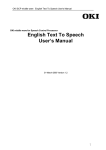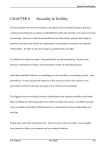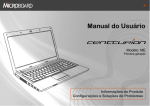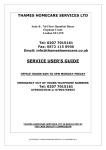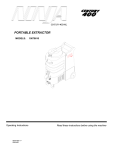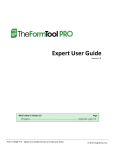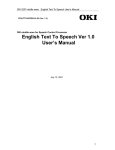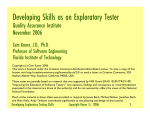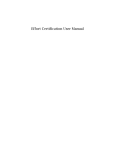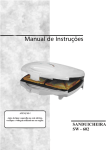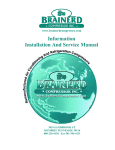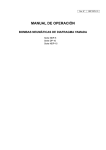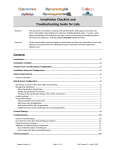Download Syllabus - Theology Lived
Transcript
Money Sex & Power BBST 465 01 (T 1:30-4:20pm) – Business 102 I. Biola Mission Statement Biola University’s mission is to provide biblically centered education, scholarship and service, equipping men and women in mind and character to impact the world for the Lord Jesus Christ. II. Course Description Money, sex and power are so often associated with human sin that we read the words as a list of vices. However, all of these words represent or reflect an aspect of creation which God deemed to be good. In fact, money, sex and power are essential to human life in a material world. This seminar will examine both how we have abused these aspects of creation and also cast a vision for what the world might look like if money, sex and power were submitted to the Lordship of Christ. III. Learning Outcomes • • • • IV. Students will be able to identify and explain the major aspects of a distinctively Christian worldview regarding money, sex & power. Students will be able to synthesize their understanding of an aspect of either money, sex or power into a practical integrative theology. Such a theology will have implications for their beliefs, affections, and actions within this realm. Students will be able to perceive the connection between biblical revelation and the created order and understand the implications of the unity of the God of creation and the God of redemption. Students will be equipped to express their Christian faith and the Lordship of Christ in the context of their daily life. Texts 1. Blomberg: Craig Blomberg, Neither Poverty Nor Riches: A Biblical Theology of Possessions, 2001 2. Winner: Lauren Winner, Real Sex: The Naked Truth About Chastity, 2005 V. Disabilities Students desiring accommodations on the basis of physical, learning, or psychological disability for this class are to contact the Office of Disability Services. The Office of Disability Services is located in the Student Services Building and can be reached by calling extension 5851. VI. Assignments A. Exams & Reading Outlines (20%) In order to demonstrate your understanding of the essential features of a Christian worldview you will hand in summaries of the required readings and take a mid-term exam over the lecture material. 1. Reading Outlines (6%): Will be due on dates noted in class schedule below. Three outlines will be required. All must be submitted via Blackboard. 2. Mid-term exams (14%): There will be a quiz (4%) and a mid-term exam (10%) dealing with the lecture material. The exam is weighted more heavily and will be comprehensive. Both the quiz and the exam are composed of multiple choice and short answer questions. ! ''#%!" %&$' B. Portfolio (70%) Each student will be required to do a capstone portfolio. This will be a large project that is composed of sections which will be completed progressively through the course of the semester. All papers submitted for this portfolio should be well written. Grammar, clarity of expression and stylistic considerations will be important in every aspect of this portfolio. This is a senior capstone project, and part of what you are demonstrating is your ability to express your thoughts in writing. Format: Please submit your papers using Turabian format (a sample style sheet is posted on Blackboard). If your major has trained you to use APA or MLA, these are also acceptable and a style sheet is posted on Blackboard as well. Turabian is preferred. The portfolio will be composed of the following components submitted on the dates given in the Class Schedule below: 1. Topic choice and Personal Starting Points Paper –5 % (1-2 pages) a) Each student will hand in a 1-2 page paper that identifies the topic of their portfolio. (Students will choose one of the topics from the Project Descriptions handed out the first week of class.) This paper will express the student’s own assumptions, initial beliefs and thoughts about this topic. Students should be sure to reflect deeply on their own thoughts, experiences and biases. Though brief, this paper is a very important part of the portfolio. b) This paper, and all others, must be submitted via Blackboard! See instructions under “General Guidelines for Assignments.” 2. Academic Literature Survey 20% (8-12 pages total, divided into summary and commentary as described below) a) Reading: Read 10 articles or book chapters (minimum 150 pages total) related to your topic of interest. Most suggested topics have readings included in the project description which is posted on Blackboard. These are a starting point for your work, but part of the goal is for you to demonstrate your ability to do library research by finding relevant articles on your own. Some guidelines for articles: (1) Try to have a mixture of academic sources and thoughtful cultural commentary. (a) Academic sources means peer reviewed journal articles (some of the library databases have “peer-reveiwed” as a selection criterion.) (b) By cultural commentary magazines I mean: Atlantic Monthly, New Yorker, Commentary, The New Republic, The Economist etc. Though not “academic journals” they often include very thoughtful commentary which is very appropriate to the topics we are considering. Avoid mere editorials or short (2-3 page) articles. Concentrate on full-length articles. (2) Avoid internet sources since they will not be article/chapter length, and will generally not have gone through a process of peer review. (Articles published in academic journals which you access online are fine.) (3) Avoid newspapers and grocery story magazines such as Time, Newsweek, Better Homes & Gardens, Cosmopolitan, and the like. Also, avoid Business Week, Forbes, etc. unless there is a full 10+ page feature article of substance. (4) No more than three articles from a single author or from a single book. (5) Make sure to use current sources. (Journals within last 10 years, books within last 15 years.) (6) Our textbooks for this class do not count. b) Written project: Prepare an annotated bibliography of your readings. It should include: (1) Introduction (a 1-2 paragraph description of your topic and the rationale for the readings you chose.) Revised 5/2/10 2 (2) Summary (approx. 6-9 pages): (a) Summarize the 10 articles/chapters you read in an annotated bibliography. This is a set of short statements of the main points of the articles from the standpoint of what is important FOR YOUR TOPIC. (It is not a generic abstract of the article. A sample will be posted on Blackboard.) (3) Commentary: (approx. 2-3 pages): (a) Summarize current academic thought related to your topic. This will usually involve clear identification of the different schools of thought, or the areas of agreement and disagreement in current discourse. (For example: “There are two major schools of thought regarding the ethics of free market capitalism…”; or “scholars agree that globalization has improved the living conditions of the poorest of the poor, but questions remain regarding the exploitive profit extracted by multinational companies. Some feel …..and others believe…”; or “though it is agreed that capitalism promotes better productivity than the central planning typical of communism, opinion is divided on the importance of regulating markets…”.) (b) Identify and discuss 4 to 6 worldview assumptions that sit behind the scholarly opinions you have read. These don’t have to be false assumptions, just assumptions—good, bad or indifferent. As you present these assumptions, include quotations or examples to illustrate these assumptions. (For example, “scholars seem to assume that human beings are naturally greedy for material goods, as Stanely Jones comments, ‘we need not wonder what drives the market—it is the universal desire for more and better goods…’”; other examples of assumptions might be: “scholars assume that all value can be reduced to economic value”, or “that people will have equal inclinations to work and to consume goods”) (c) In light of your readings and reflections, what are some important questions related to your topic on which you would to gain a biblical perspective. (These can simply be listed at the end of your paper.) 3. Biblical Survey 20% (8-10 pages) a) Write a thoughtful overview of the biblical perspective on your topic. (For example, if you are addressing capitalism and free market economics, you would consider biblical notions of private property, the value of material goods, the goodness of creation, the permissibility of buying, selling, and saving money, etc.) This should use skills of biblical research acquired from your prior Bible courses. b) Some specific guidelines: (1) I would encourage you to begin your study by reading a few theological dictionary articles on your topic or closely related topics. This will help you identify important concepts and key passages. (A good resource is Baker’s Evangelical Dictionary of Theology. See also Zondervan Pictorial Encyclopedia, ISBE, Holman Illustrated Bible Dictionary; A good systematic theology (perhaps Grudem) may also be helpful.) (2) Use appropriate sources—commentaries, bible dictionaries, journal articles, academic texts. Don’t merely decorate your paper with citations—use these sources to make your points. (3) Define your study carefully. You may focus on a handful of key passages or you may attempt a broader survey. Be sure to explain the rationale for your choice in the introductory portion of your paper. (4) Draw out theological implications from the passages you study. This will serve as the first stage of processing the data of Scripture into a biblical theology of the topic you are studying. (5) Generally speaking, give chapter & verse references rather than citing the entire text. Only include the text of the passage if you are making an important interpretive observation that requires seeing the text itself for the reader to understand. Revised 5/2/10 3 (6) Chose a passage of Scripture that you would like to make your “course verse.” This is a passage that I would like you to memorize and/or meditate on several times over the semester. (You will receive a set of guidelines for doing meditation exercises on the passage you choose.) (7) If you did your Academic Literature Survey first, discuss answers you found to the specific questions related to your topic that you identified when writing that survey. (If you failed to find helpful answers, explain this fact briefly and move on.) IF YOU DO THIS SURVEY FIRST, include some questions to which you hope to find answers in your Academic Literature Survey. 4. Experiential Component (3 pages)—10%: a) Generally speaking, you will have ideas for the experiential component listed in the original topic descriptions. Use these ideas and your own creativity to develop an experiential component related to your chosen topic. b) Be creative. Ask for help if you need it, but understand that part of the aspect of the project is conceiving of it. Part of your grade will be the quality of the experience you set for yourself. c) Write a three page summary of the experiential component, and how it affected your understanding of the topic. Be sure to include in your summary the answer to any specific questions included in your project description. 5. Integrative Theology and Conclusion –15% (6-9 pages or equivalent) a) Standard format: Draw the different learning projects together into a single whole—an “integrative theology” of the topic you have studied. (1) Summary of general and special revelation (3-4 pages). You have studied general and special revelation as they address this topic. Summarize what you have learned using the following categories. Please remember that all categories do not necessarily apply to every integrative topic—use only the categories that seem to be appropriate: (a) Points of congruence: in these areas, general and special revelation essentially agree. They largely agree on what is true and understand these truths similarly. (b) Points of complement: General and special revelation complement each other, talking about different aspects of the same issue or giving different emphasis to certain issues. The viewpoints are compatible, but each brings different information to the discussion. (c) Points of conflict: General and special revelation are in tension or even appear to contradict one another. In such cases, you may want to attempt a reconciliation between these two perspectives. (2) Synthesis of general and special revelation (2-3 pages): having identified the ways in which general and special revelation are congruent, complement, or conflict, attempt to give a summary description of the whole. In effect, you are trying to weave a seamless garment of truth describing your chosen topic. (a) Using points of congruence and complement try to form a comprehensive summary statement of truth about your topic. It would read something like an encyclopedia combined with a theological dictionary article on your topic. (b) Discuss points where there is clear conflict between your stated synthesis and the prevalent understanding or practices of American culture (or human culture more generally). It is usually wise to consider popular culture at large, as well as the sub-culture of the church. (3) Call to Action (1-2 pages) (a) What is something tangible that might be done to move our culture and/or the church in a more kingdom-like direction. (b) You may want to consider all three aspects of personhood: intellect, emotion and will. What should we think? What should we love, hate, embrace or shun? What should we do or not do? (This will fit some topics better than others.) Revised 5/2/10 4 (c) You may also respond to specific failures of the modern culture or church life with specific recommendations. (4) A note on citations: If you are writing a standard paper, be sure to use footnotes. You will refer to material from previous sections of your portfolio, but cite that material appropriately. Don’t just tell me that research proves forgiveness helps a person’s physical health—cite the article that states this fact. Also, avoid copying large sections from you previous papers. The integrative theology moves beyond the raw material of your biblical and academic study to analyze and synthesize into the “seamless garment of truth” mentioned above. b) Creative Format: You may use a creative format for your integrative theology. This will consist of two parts. (1) Begin with a 3-page summary of general and special revelation—just as for the standard paper. (2) For the second and third parts of the paper (synthesis and call to action), do a creative project which expresses something important you have to say about the topic. (a) Students have done video productions, written short stories or poetry, created and performed a reader’s theater, made photographic portfolios, and submitted various other creative projects—many have been of excellent quality. (b) Remember, you must clearly express the truths you have discovered in your research. Therefore, if you submit a painting (for example), you may want to include a brief written explanation of the painting and how it expresses the “seamless garment truth” you have discovered. (3) Don’t use this approach to save time and effort! A good creative project is almost always more time-consuming than writing a paper. However, creative projects are often more enjoyable and have a greater lasting impact on your life. C. Class Participation (5%) 1. Class presentation: You will present your findings in class—you will have approximately 20 minutes for your presentation. You may be grouped with other student who have related topic—time for joint presentations will be up to 30 minutes. This will contribute to your grade in two ways: a) You will be given a grade for your presentation b) You will be given a grade for your evaluation of your peers as they present their projects in class. (You will be graded down if you do not hand in an evaluation for each student presentation.) 2. You will be assessed a grade for class participation and attendance. This will not be formally weighted but will be used to help decide borderline grades. D. Final (Reflections Paper) (5%) 1. For your final exam, you will submit a three page reflection on what you have learned in this class. Include: a) How your perspectives on the topic you have studied has changed or grown through the course of the semester. (I recommend re-reading your “Personal Starting Points” paper.) b) Reflect on the impact this project has had on your spiritual life—both in terms of your view of the world and your responsibilities as a follower of Christ as well as the impact on your heart and soul. 2. Due date: this paper is to be submitted via Blackboard the Monday of Finals Week. E. General Guidelines on Assignments 1. Submission procedure: All assignments are submitted on Blackboard. Click on the “Assignments” tab on the left side of the browser window. Scroll to the assignment you want to submit and click on it. You will be able to attach a file by clicking on the browse button and navigating to that file on your hard disk. PLEASE NOTE: The assignment will not be uploaded until you click on the SUBMIT button at the bottom Revised 5/2/10 5 of the page. So there are two parts to your submission: 1) click on “Browse” and navigate to your file and click Open; and 2) once this has been done, click on the submit button. Since submissions are all done on Blackboard rather than in class, you may have assignments due on days when class does not meet. You also have until midnight of the due date to hand in an assignment. 2. Late Policy: All assignments are expected to be handed in on time. If you are prone to have problems with computers or are using computers that you don’t always have access to, the appropriate response is to plan ahead not to ask for an extension. Blackboard records the time of submission automatically, so there should be little controversy about whether or not a paper was handed in on time. Late submissions are acceptable on the following terms: a) Assignments submitted after the due date and up to one week late will be penalized one letter grade. b) An assignment submitted between one and two weeks late will be penalized two letter grades. c) Any assignment submitted more than two weeks late should include specific permission from the professor and is liable to further penalty. (Reading outlines submitted more that two weeks late are given half-credit—there is no need to obtain special permission as long as they are in by the Friday before Finals Week.) Revised 5/2/10 6 Week beginning Topics Assignments Due 9/1 Introduction to Theological Integration (Colossian 1:15-20 and Kingdom Integration) Reading: Blomberg pp. 17-55 9/8 Power—Prologue Biblical Perspective on Money: Introduction Reading: Blomberg pp. 57-109 Friday, 9/11 Reading Outline Due, pp. 17-109 9/15 Biblical Perspectives on Money Reading: Blomberg, pp. 111-176 Tues 9/15 Starting Point (Portfolio assignment #1) 9/22 Biblical Perspectives on Giving Money & Church History Reading: Blomberg pp. 177-258 Tues, 9/22 Reading Outline Due, pp. 111-258 9/29 Money & Church History Introduction to Biblical Perspectives on Gender Reading: Winner 9-60 Wed 9/30: Academic Literature Survey Due 10/6 Biblical Perspectives on Gender Reading: Winner 61-100 10/13 Biblical Theology of Marriage Reading: Winner 103-147 Tues 10/13 Reading outline due Winner 9-100 10/20 Biblical Theology of Marriage cont. / Quiz Tues 10/20: Biblical Survey Due 10/27 Special Section: Homosexuality Reading: Winner pp. 149-161 Tues 10/27 Reading outline due: Winner 103-161 11/3 Homosexuality & Contemporary Culture 11/10 Power Mon 11/9 Experiential Component Due 11/17 Exam (Power in Biblical & Philosophical Perspective) Exam (in class) 11/24 Student Presentation & Discussion 12/1 Student Presentation & Discussion 12/8 Student Presentation & Discussion Portfolio: Integrative Theology (Due Sunday before presentation date, submit Integrative Theology on Blackboard—bring hard copy of entire portfolio to class on the day you present.) (Participation & evaluation your peers is required for all students on every presentation) 12/15 Finals Week Final Reflections Paper (via Blackboard) Revised 5/2/10 7 VIII. Other Important Notes A. Office hours 1. Location: D. English (McNally) 66 Office #3. 2. Office hours: You are always welcome! Feel free to walk-in anytime. Normal hours are Mon (or on some weeks Friday) 2-4pm, Tues 9am-12pm, Thur 9am-12pm. There are some variations week by week, so always check online. 3. Making appointments: Because I have various other commitments on campus, it helps to schedule an appointment even if you are coming during office hours. Use the online office hours webpage: a) Navigate to the office hours webpage for Biblical Studies: either type in the link below, or go to Blackboard, click on my class, and then click on the Office Hours button http://wisdom.biola.edu/admin/OfficeHoursBiblicalStudies/ b) Log in using your username and password. If you are a first time user, click on “First Time Student Registration” and create a username and password. c) Click on the link beside my name to go to the calendar for the current week or current month. Then, reserve a green space of available time. d) If none of the scheduled hours works for you, please email me for other times. B. Grading 1. The Grading Scale: 100-93..............A 92-90................ A89-88................ B+ 87-83................ B 82-80................ B79-78................ C+ 77-73................ C 72-70................ C- 69-68 ............... D+ 67-63 ............... D 62-60 ............... D59-0 ................. F 2. Grading Standards for Written Work Whereas Biola University desires to maintain the highest standards with respect to the composition of all written work, any student paper exhibiting poor grammar, spelling errors, typographical errors, or other substandard academic expression shall have the overall grade for that paper reduced accordingly. Generally, a paper will be deemed substandard and ineligible to receive an “A” grade when it averages three or more compositional errors per page. Moreover, at the discretion of the professor, the substandard paper may be returned to the student for correction and resubmission with appropriate grade penalties. Students deficient in writing skills may seek assistance at the Biola Writing Center. C. Plagiarism Biola University sees any form of plagiarism as a serious problem with serious consequences. Please refer to the academic integrity statement in the Student Handbook, Academic and Behavioral Standards section. Please Note: Do not take this lightly; the consequences are profound and fundamental. I have posted the relevant excerpt from the Student Handbook on Blackboard. To summarize: at a minimum, you will receive a 0 for that assignment without the possibility of resubmission. If you plagiarize a major class assignment, you will fail the class. If this is not the first time you have plagiarized, the consequences are more profound, including the prospect of completing your education at another institution. Revised 5/2/10 8 LOGGING ONTO blackBOARD Blackboard (Bb) is a web-based “course management system” that enables you, your classmates, and your professor to build and participate in an online, interactive learning environment. Bb can be used to enhance learning in classroom-based courses and distance learning courses. Your professor will let you know if he or she is using Bb in your course. The instructions below tell you: how to get your Bb password and how to login to Bb, what you can do if you lose or forget your password, how to check your computer for Bb compatibility, what you should do as soon as possible after entering Bb, and how to get help using Bb in your Biola courses. How do I check my computer for Blackboard compatibility? Before logging onto Bb, we recommend you check that your computer has an up-to-date web browser and the plug-ins you’ll need while using Bb. If you’re using the Biola computer labs, you’re good to go. Otherwise, go to http://browsertuneup.pearsoncmg.com/browser_tuneup.html to check your current setup, and get the plug-ins you need. (NOTE: This website is from Pearson Education and makes no mention of Bb, but it will automatically test your computer and browser for Bb compatibility.) How do I get my Blackboard password? If you are enrolled in courses at Biola, an account has already been created for you. The username is your Biola ID number (no leading zeros), and you can find the password on the Biola Portal. Login to the Portal at https://portal.biola.edu/portal and click on the Password button near the top of your Portal page. Then click on the Blackboard Password tab to see your initial password. You’ll also see instructions for changing your initial Bb password to a personalized Bb password. We recommend you change it to your Portal password so it’s easy to remember. How do I login to Blackboard? 1. 2. 3. 4. Go to http://biola.blackboard.com and click on the Login button (or click Blackboard on the top of your Portal page.) Type your Biola ID number (no zeros) into the Username field. Type your Blackboard password into the Password field. Click the Login button and you’re in! What should I do first? 1. If you haven’t already done so, change your password from the initial one to a personalized password (again, we recommend changing it to your Portal password). You can do this easily by clicking on the Personal Information link in the Tools sidebar of Blackboard (on the left), then Change Password. Enter your personalized password in both fields, then click Submit, and you’re done. 2. IMPORTANT: Make sure your name is correct in the system, and enter your preferred email address. You can do this in the Edit Personal Information section after clicking the Personal Information link. Adding your email address allows you to recover your password if you forget, and facilitates course communication. What if I forget my Blackboard password? • If you haven’t changed your initial password to a personalized password, simply log into the Portal and view your initial password again. • If you have set up a personalized password and have entered an email address in your Blackboard Personal Information page, simply go to the Bb login page, click Forgot Password? and follow the instructions. What if I need help using Blackboard? • The Blackboard Student User Manual is available online. To access the manual, enter Blackboard, open any course on your Course List, and click the Tools link. Or from outside of Blackboard visit: http://library.blackboard.com/docs/r6/6%5F1/student/bbls%5Fr6%5F1%5Fstudent • For questions about using Blackboard in a course, please see your professor. August 9th, 2006 Copyright Biola University Revised 5/2/10 9











